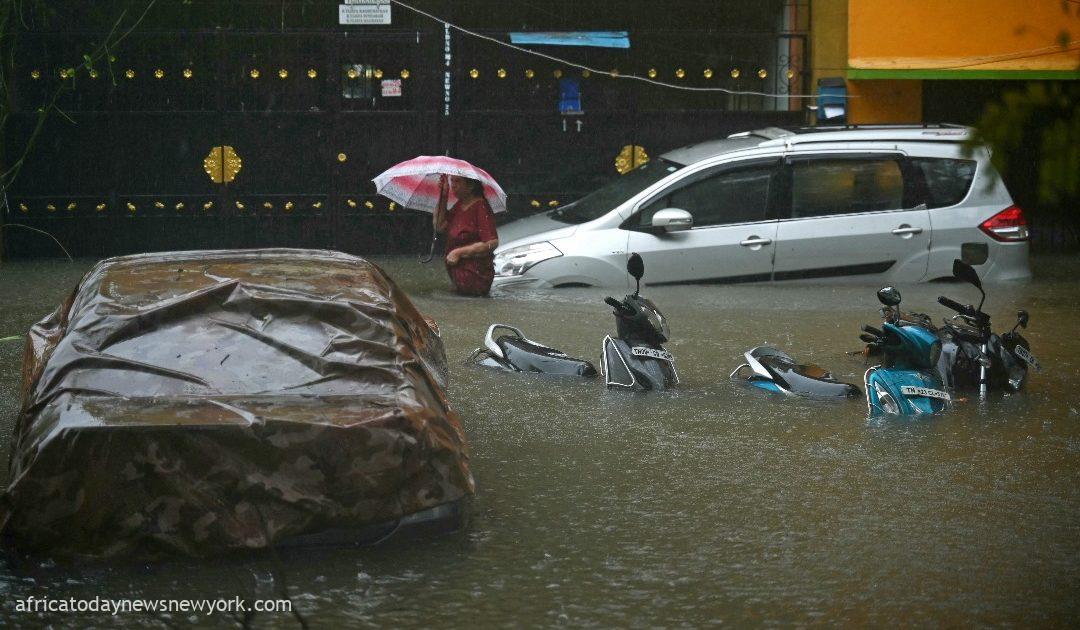No fewer than eight people lost their lives on Tuesday following intense floods as Cyclone Michaung was set to make landfall on India’s southern city of Chennai.
The Indian Meteorological Department pointed out that the cyclone was forecast to hit the coast of Andhra Pradesh state later on Tuesday, as a ‘severe cyclonic storm’, packing winds up to 100 kilometres (62 miles) per hour.
In Chennai, cars were seen floating on raging torrents, homes were flooded, and a crocodile was spotted swimming the streets in the city.
In some parts of the flooded city, people used boats to get out of their flooded neighbourhoods to the safety of government relief shelters.
The IMD warned of ‘exceptionally heavy rainfall’ in some areas.
Read Also: Western India: 24 Fatalities Caused By Lightning, Hailstorms
‘We are facing the worst storm in recent memory,’ Tamil Nadu state chief minister M.K. Stalin said, in a statement late Monday.
Police on Tuesday said that eight people had been killed in the state capital of Chennai.
They included some who drowned, as well as one person hit by a falling tree, another electrocuted by live wires in the water, and one crushed by a falling wall.
Africa Today News, New York reports that the trees were uprooted and vehicles swept away due to the heavy rains, according to images posted on social media.
Apple iPhone manufacturers Foxconn and Pegatron and automaker Hyundai suspended their operations in Tamil Nadu due to the storm, local media reported.
In another report, lightning, intense rain, and hailstorms over the weekend claimed the lives of at least 24 people in India, according to officials.
Houses were damaged, and livestock perished as the weather wreaked havoc across the western Gujarat state. Meteorologists noted that winter storms are uncommon in Gujarat, making the sudden and intense downpour surprising for many.
Each year, India witnesses the tragic loss of thousands of lives due to flash floods and lightning strikes, with scientists sounding the alarm that escalating global temperatures are contributing to a surge in extreme weather events.
Elevated land and sea surface temperatures heat the air above, providing increased energy to fuel thunderstorms—the origin of lightning.
